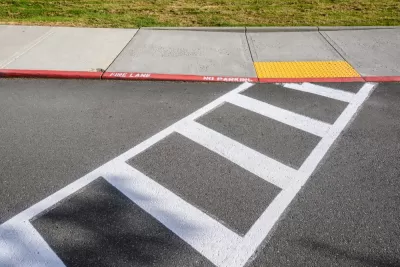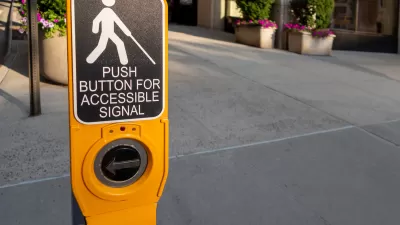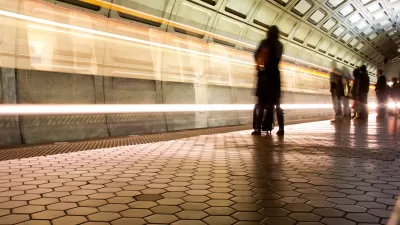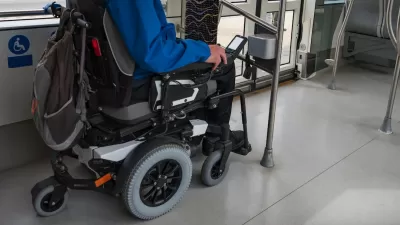Disability rights advocates won a settlement that directs the city to improve accessibility on its public roads over the next 15 years.

The city of Philadelphia will build or repair 10,000 curb cuts to comply with the settlement of a lawsuit filed by disability rights advocates, reports Sophia Schmidt for WHYY. If the settlement agreement is approved by a federal judge, the city will make the required improvements over the next 15 years.
“[The advocates] described a city filled with barriers, including uneven, crumbling sidewalks, improper snow removal, construction without safe alternative routes, illegally parked cars, and ‘fake curb cuts,’ where concrete is just poured to fill the space between the curb and the street,” Schmidt writes. “According to the complaint filed in 2019, several of the plaintiffs had gotten hurt tripping over hazards or falling out of wheelchairs, just trying to get around the city.”
The settlement, which is focused on curb cuts, will not apply to sidewalks or sidewalk obstructions, which pose another challenge to people with disabilities trying to navigate the city.
Although the Americans with Disabilities Act (ADA) is more than three decades old, many public spaces and streets still lack universal accessibility. Meanwhile, private spaces fare no better. As Steve Wright noted in 2020, “In fact, fewer than 1% of single-family homes in America are move-in ready for a wheelchair user, a staggering fact considering that over half of Americans live in single-family houses.”
In 2021, the federal government announced it would enforce the Public Right-of-Way Accessibility Guidelines (PROWAG) as federal standards, which could move the needle on how developers and planners prioritize accessibility. But so far, it has taken lawsuits—in cities such as Atlanta, Baltimore, and Seattle—to gain significant improvements from local governments.
FULL STORY: Philly will build or fix 10,000 curb cuts under settlement with disabled residents

Study: Maui’s Plan to Convert Vacation Rentals to Long-Term Housing Could Cause Nearly $1 Billion Economic Loss
The plan would reduce visitor accommodation by 25% resulting in 1,900 jobs lost.

Alabama: Trump Terminates Settlements for Black Communities Harmed By Raw Sewage
Trump deemed the landmark civil rights agreement “illegal DEI and environmental justice policy.”

Why Should We Subsidize Public Transportation?
Many public transit agencies face financial stress due to rising costs, declining fare revenue, and declining subsidies. Transit advocates must provide a strong business case for increasing public transit funding.

Paris Bike Boom Leads to Steep Drop in Air Pollution
The French city’s air quality has improved dramatically in the past 20 years, coinciding with a growth in cycling.

Why Housing Costs More to Build in California Than in Texas
Hard costs like labor and materials combined with ‘soft’ costs such as permitting make building in the San Francisco Bay Area almost three times as costly as in Texas cities.

San Diego County Sees a Rise in Urban Coyotes
San Diego County experiences a rise in urban coyotes, as sightings become prevalent throughout its urban neighbourhoods and surrounding areas.
Urban Design for Planners 1: Software Tools
This six-course series explores essential urban design concepts using open source software and equips planners with the tools they need to participate fully in the urban design process.
Planning for Universal Design
Learn the tools for implementing Universal Design in planning regulations.
Smith Gee Studio
Alamo Area Metropolitan Planning Organization
City of Santa Clarita
Institute for Housing and Urban Development Studies (IHS)
City of Grandview
Harvard GSD Executive Education
Toledo-Lucas County Plan Commissions
Salt Lake City
NYU Wagner Graduate School of Public Service





























